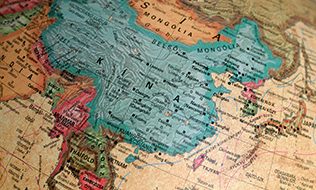

The sentiment for investing in emerging markets in Asia has jumped significantly over the past year, from 19 in 2015 to 34 in 2016, according to an investor sentiment index by Manulife Asset Management.
The favourable outlook towards Asia is supported by the political uncertainties experienced in the U.S., Britain and Europe this year, as well as potential changes to economic policies under the upcoming administration of U.S. president-elect Donald Trump.
“U.S. fixed investment is expected to pick up and global monetary policy is likely to remain accommodative which will alleviate pressures on the equity markets,” said Geoff Lewis, senior Asia strategist at Manulife Asset Management, in a release.
Read: Sounding Board: Low volatility doesn’t mean low risk
“There are significant opportunities in Asia for investors. The region hasn’t been immune to the challenges facing the global market economy, but it’s still, in our opinion, the highest quality emerging market in the world and likely to draw increased interest in 2017.”
The region presents opportunities for investors willing to diversify across asset classes and geographies, according to Manulife. Higher yielding asset classes, including Asian equities, could also offer better returns for investors that want to manage market volatility.
Read: Investors to consider alternatives amid increased volatility in 2017: survey
“We believe 2017 could prove a turning point for Asian equities, particularly if China’s gradual economic rebound presents positive knock-on effects for other regional economies,” said Ronald Chan, chief investment officer of equities Asia (ex-Japan) at Manulife Asset Management. “As the economic outlook brightens, valuations are also expected to improve, which could offer meaningful gains for opportunistic investors. At Manulife, we see constructive opportunities in Indonesia, China and India equities.”
In regards to Asian fixed-income prospects, volatility in rate, credit and currency markets should remain in 2017, according to the report. The outlook for Asian fixed income will depend on Trump’s monetary policies and the possibility of a rate hike from the U.S. Federal Reserve.
“The fundamentals for Asian fixed income are still there and supportive,” said Endre Pedersen, chief investment officer of fixed income Asia (ex-Japan) at Manulife Asset Management. “Looking ahead in 2017, if the credit spreads widen and stability of rates and currencies kick in, there will be potential to generate positive returns in some local markets.”
Read: The growing attraction of Chinese real estate investments
